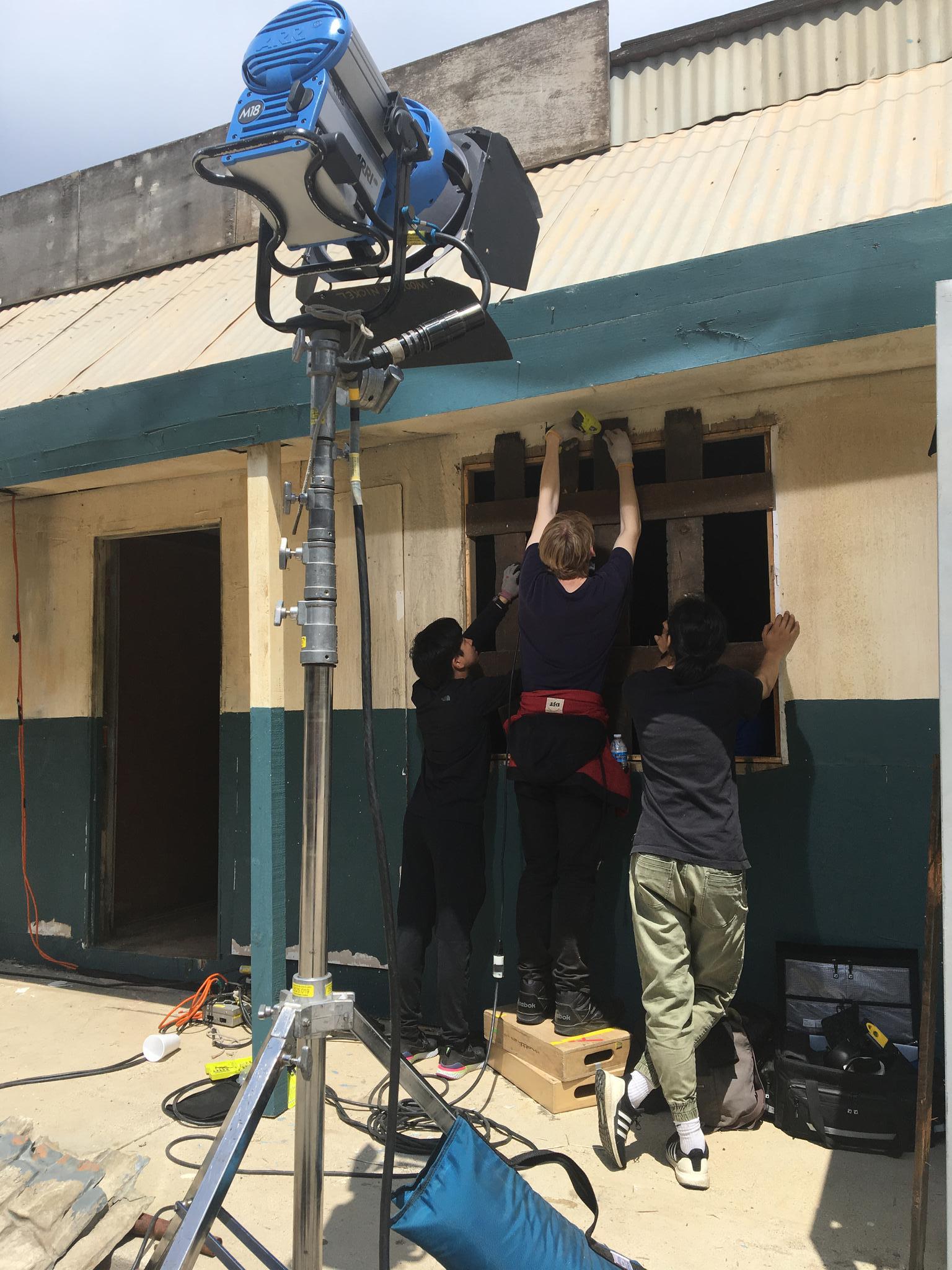Escaping our academic discipline silos
I went today to the SMC film production discipline's short movie shoot because the student director put out a call for extras.
I didn't end up participating as an extra, but I did spend time watching an amazing crew of students working on their capstone project. The program's student films win awards at festivals worldwide.
I was surprised when my colleagues, particularly film professor Salvador Carrasco, told me no other non-film-discipline professors from our department had ever attended one of their on-location shoots to see the students in action.
We brainstormed ways that our journalism discipline students might report on the film students' work in a future semester, or how media production students could practice making the behind-the-scenes videos so popular in the film and tv industry (see Game of Thrones: The Last Watch).
I took a few photos of the crew as they were preparing to shoot and thought about how isolated in our discipline silos we professors can be.
I thought about sharing the photos and collaboration with colleagues in a big group email and then considered the intra-department politics of it. Would it be committing people to a collaboration they didn't want? Did professors have outstanding grudges over past projects or interactions that went awry? I decided not to send a group email until after I suss it out one-on-one with our chair and individual faculty.
Surely one reason why we don't collaborate more is due to the teaching load. At community colleges, we all teach 5 classes a semester, which can be overwhelming. After office hours, program review, college committees and student club advising, would we have time to brainstorm collaborations and spend time learning what each other is doing in the other disciplines.
I also considered whether it was a matter of pride and self-preservation. Why not devote the time to amplifying what the students are doing in our own discipline? If it comes to survival of the most respected/publicized, should we focus on all the great work we are doing inside our own disciplines.
I believe that philosophy stems from the zero sum approach, where if one program gets more praise, that means less attention, students and publicity for another program. But I prefer to see our department as an ever-growing pie.
In my 20s, I was insecure, always comparing my successes to others. The best perspective shift someone taught me was to see myself and others as part of a team. A win for any one of us was an overall win for the team.
That means, if another program is doing great, if student tells me a particular professors is awesome, that's a win for us, the professor team. It doesn't diminish my efforts or successes in any way. Instead, it's a win for all of us, and we each do our part to win for all of us, and ultimately for our students.
This win-for-the-team philosophy has made me more open to spotlighting my colleagues' contributions and appreciating their unique talents.


0 Comments Add a Comment?